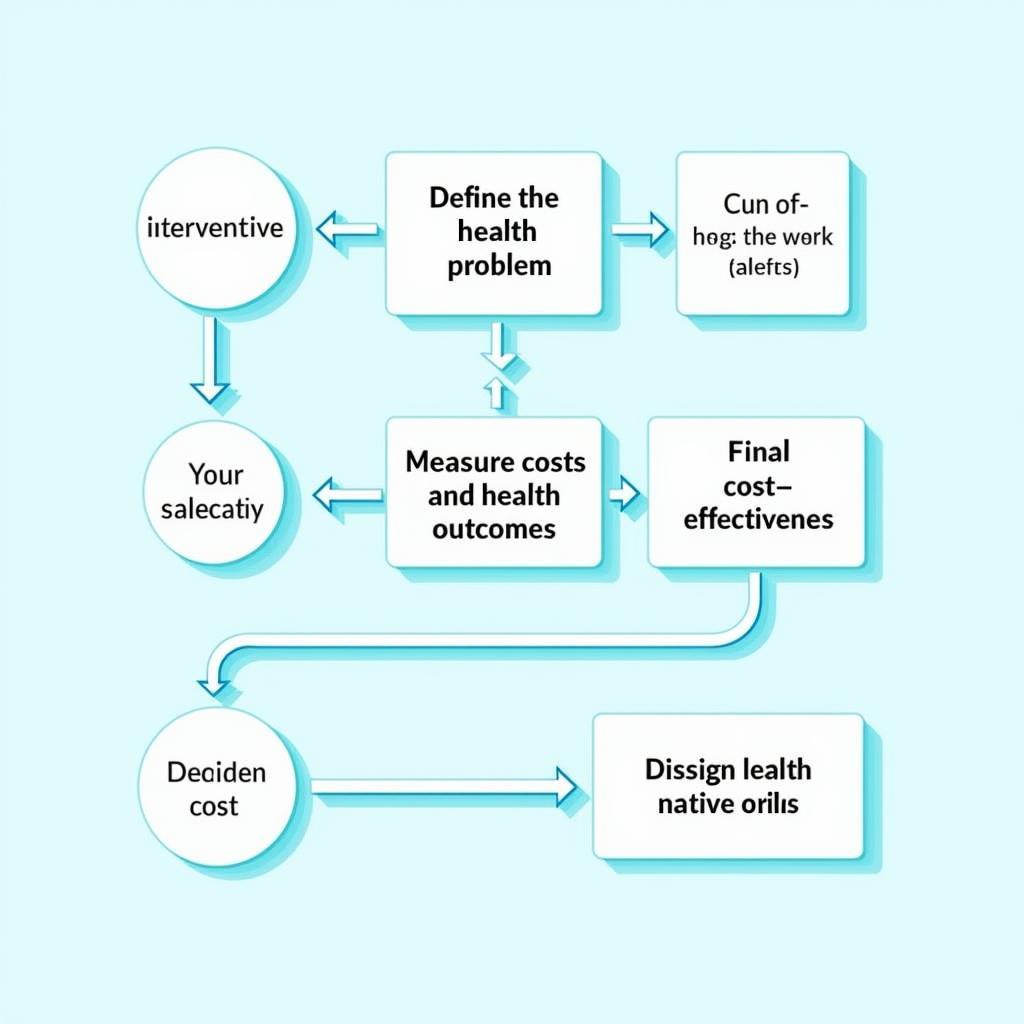Economic tools and concepts play a crucial role in understanding and improving health care systems. They help us analyze how resources are allocated, how different interventions impact health outcomes, and how to achieve the best possible health outcomes given limited resources. This article will delve into the core economic tools and concepts used in healthcare, exploring their practical applications and significance.
Understanding the Basics of Health Economics
Health economics applies the principles of economics to the health care sector. It aims to optimize health outcomes while considering resource constraints. This field addresses questions like how to allocate funding for different health programs, how to evaluate the cost-effectiveness of new treatments, and how to design insurance schemes that balance affordability and coverage.
Key Economic Concepts in Healthcare
Several key economic concepts form the foundation of health economics:
- Scarcity: Resources, including money, personnel, and equipment, are limited. This necessitates choices about how best to allocate them.
- Opportunity Cost: Choosing one healthcare intervention means forgoing another. The opportunity cost is the value of the next best alternative.
- Supply and Demand: These forces influence the prices and availability of healthcare services. Factors such as insurance coverage and technological advancements can impact both supply and demand.
- Marginal Analysis: This involves assessing the additional benefit or cost of using one more unit of a resource. For example, what is the additional benefit of one more day in the hospital?
Applying Economic Tools in Healthcare
Health economists employ various tools to analyze healthcare systems and make informed decisions. Some of the most common tools include:
- Cost-Effectiveness Analysis (CEA): This compares the costs and health benefits of different interventions. It helps determine which interventions offer the most health gain for a given cost. CEA is particularly useful in prioritizing limited resources.
- Cost-Benefit Analysis (CBA): CBA takes CEA a step further by assigning monetary values to health outcomes. This allows for direct comparison of costs and benefits, even across different types of interventions.
- Statistical Analysis: Statistical methods are used to analyze healthcare data, identify trends, and evaluate the effectiveness of programs and policies.
 Applying Economic Tools in Healthcare Systems
Applying Economic Tools in Healthcare Systems
Examples of Economic Tools in Action
Consider the decision of whether to fund a new screening program for a particular disease. CEA can be used to compare the costs of implementing the program with the health benefits gained from earlier detection and treatment. CBA might be used to compare the overall societal benefits of the program, including reduced productivity losses, with the costs of implementation.
The Role of Economic Evaluation in Healthcare Decision-Making
Economic evaluation plays a vital role in healthcare decision-making at all levels, from individual patient care to national health policy. It informs resource allocation decisions, helps to identify cost-effective interventions, and promotes transparency and accountability in the use of public funds.
Addressing Challenges in Healthcare Economics
Despite its importance, applying economic principles in healthcare faces numerous challenges. These include the difficulty of accurately measuring health outcomes, the ethical considerations involved in assigning monetary values to human life, and the complex interactions between various stakeholders in the healthcare system.
Conclusion: The Importance of Economic Tools and Concepts in Healthcare
Economic tools and concepts are essential for understanding and improving healthcare systems. By applying these tools, we can make informed decisions about resource allocation, evaluate the effectiveness of interventions, and ultimately achieve better health outcomes for individuals and populations. Understanding these concepts helps navigate the complex landscape of healthcare decisions and advocate for efficient and equitable healthcare delivery.
FAQ
- What is the difference between CEA and CBA?
- How are health outcomes measured in economic evaluations?
- What are some of the ethical considerations in health economics?
- How can economic evaluation be used to improve health policy?
- What are the limitations of using economic tools in healthcare?
- How does health insurance impact the demand for healthcare services?
- What is the role of government in healthcare economics?
Need help with Car Diagnostic? Contact us via WhatsApp: +1(641)206-8880, Email: [email protected] or visit us at 910 Cedar Lane, Chicago, IL 60605, USA. We have a 24/7 customer support team.

